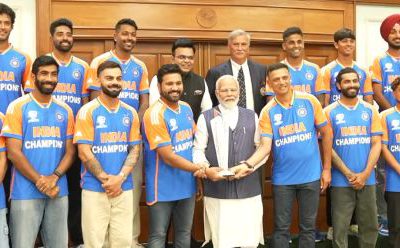
New Delhi: After eight Zika cases were reported from Maharashtra, including among two pregnant women, the Centre on Thursday issued an advisory to all the States flagging the need for maintaining a state of constant vigil over the virus in the country.
Maharashtra reported eight cases from Pune (6), Kolhapur (1), and Sangamner (1) as of July 2.
Officials said the Union Health Ministry is closely monitoring the situation as cases so far are being reported from Maharashtra only. Zika is a non-fatal, Aedes mosquito-borne viral disease like Dengue and Chikungunya.
Most people with Zika virus infection do not develop symptoms; those typically have symptoms including rash, fever, conjunctivitis, muscle and joint pain, malaise, and headache that last 2–7 days. However, Zika is associated with microcephaly (reduced head size) in babies born to affected pregnant women, which makes it a significant concern.
As two pregnant women in Maharashtra were detected with the virus, Dr. Atul Goel, Director General of Health Services (DGHS), Ministry of Health and Family Welfare, in an advisory, urged states to instruct health facilities in the affected areas or those catering to cases from affected areas to screen pregnant women for Zika virus infection, monitor the growth of the foetus of expecting mothers who have tested positive for Zika, and act as per Central Government guidelines.
The condition of the two women is said to be good and have no symptoms now, officials added.
According to Prof Anurag Agrawal, former Director of the Institute of Genomics and Integrative Biology (IGIB), a national laboratory of the Council of Scientific and Industrial Research (CSIR), “the appearance of Zika virus in densely populated regions where its vector, the mosquito, is abundantly present, is a serious event in terms of public health implications. “
As has been covered in the national advisory, surveillance and reporting must be stepped up, not only within Maharashtra but other states as well, said Prof Agrawal, who is the head, Koita Center for Digital Health, Dean of the Trivedi School of Biosciences at Ashoka University.
The Centre in its advisory also instructed states to advise health facilities/hospitals to identify a nodal officer to monitor and act to keep the premises Aedes mosquito-free. Officials said as Zika is associated with microcephaly and neurological consequences in the foetus of the affected pregnant lady, states have been advised to alert the clinicians for close monitoring.
Though it is reported to be associated with microcephaly, no report of Zika-associated microcephaly has been reported in the country since 2016, officials added.
The centre also instructed the states to advise health facilities/hospitals to identify a nodal officer to monitor and act to keep the premises Aedes mosquito-free.
“States have been emphasized on the importance of strengthening the entomological surveillance and intensifying the vector control activities in residential areas, workplaces, schools, construction sites, institutions, and health facilities,” according to a statement issued by the Ministry.
The Ministry said the states have also urged to promote awareness through precautionary information, education, and communication (IEC) messages on social media and other platforms to reduce panic in the community. Zika is like any other viral infection, with most cases being asymptomatic and mild.
State authorities have been advised to be vigilant and prepared and ensure the availability of appropriate logistics at all levels to detect and control any impending upsurge/outbreak in a timely manner.
India reported the first Zika case from Gujarat in 2016. Since then, many other states, including Tamil Nadu, Madhya Pradesh, Rajasthan, Kerala, Maharashtra, Uttar Pradesh, Delhi, and Karnataka, have reported cases subsequently.
States were also urged to immediately report any detected case to the Integrated Disease Surveillance Programme (IDSP) and the National Center for Vector-Borne Diseases Control (NCVBDC).
Zika testing facilities are available at the National Institute of Virology (NIV), Pune; the National Centre for Disease Control (NCDC), Delhi; and a few selected virus research and diagnostic laboratories of the Indian Council of Medical Research (ICMR), the ministry added.
The officials said DGHS had issued an advisory earlier on April 26, and the Director of the National Centre for Vector Borne Diseases Control (NCVBDC), had issued two advisories in February and April 2024 to forewarn states about Zika, Dengue, and Chikungunya transmitted by the same vector mosquito.














